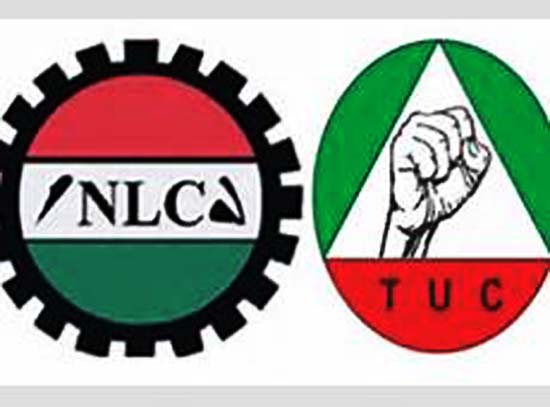
unions deny receiving Court Order
By our Reporters

As the dialogue by Federal Government with organised labour hit the rock, leadership of the two labour centres have insisted on planned mother-of-all nationwide strike.
The President of Nigeria Labour Congress (NLC), Comrade Ayuba Wabba and Trade Union Congress (TUC), Comrade Quadri Olaleye vowed to go with the strike as Federal Government representatives, which included the Minister, Senator Chris Ngige, Minister of State, Barrister Festus Keyamu (SAN) and others could not bring a justifiable reason why Federal Government should come out with such harsh decision when other countries in Africa and beyond are coming out with measures to prune the effects of COVID-19 for their people.
The mother-of-all nationwide strike is to preasurise Federal Government to reverse the hike in fuel price and electricity tariff.
Unless FG takes a step to go back to old price, then labour, according to Wabba and Olaleye would begin strike Monday September 28, 2020.
This is despite the National Industrial Court which has granted an interim order restraining the Nigeria Labour Congress (NLC) and Trade Union Congress (TUC), from staging a strike on Monday.
The order also restrained the union officers, affiliates and their agents against obstructing anyone who failed to observe the strike.
Justice Ibrahim Galadima said on Thursday that the interim order was made pending the hearing and determination of the Motion on Notice.
The court similarly restrained the unions, their officers, affiliates, their representatives from stopping ordinary Nigerians from accessing their offices to carry out their legitimate duties on the 28 September 2020 or any other date.

Justice Galadima made the order sequel to an ex-parte application filed by the Incorporated Trustees of Peace and Unity Ambassadors Association through their counsel, Sunusi Musa.
Also the court ordered the Police, DSS to provide protection for workers engaged in their legitimate duties from any form of harassment or intimidation pending the hearing and determination of the Motion on Notice.
But, the Nigeria Labour Congress (NLC) and the Trade Union Congress, on Thursday, September 24, said they are going ahead with its scheduled industrial action despite the ruling of the National Industrial Court prohibiting the action.
This was contained in a statement issued by the NLC and the TUC after a meeting between the Federal Government that ended in a deadlock.
Both Government representatives and the organised labour met Thursday in order to engage stakeholders about the hike in electricity tariffs and fuel pump price.
Nonetheless, the dialogue ended in a deadlock following the failure of the Government to reverse the price increase or offer palliatives to cushion the effects on the workers.
The NLC and TUC subsequently declared a strike and protest scheduled to commence on Monday.
Both unions said they would collaborate to execute the industrial action for maximum effect.
In the aftermath of the Thursday meeting, the National Executive Council of the NLC comprising the chairpersons of the 36 state chapters and the Federal Capital Territory endorsed the decision earlier taken by the Central Working Committee of the Congress on the strike last Wednesday.
In his reaction to the court order, the NLC President, Comrade Ayuba Wabba, dismissed it; saying he had not been served, adding that the group that filed the suit was not his employers.
He asked, “How does that (injunction) affect me if I have not been served? Have I been served? Are they our employers? What relationship do I have with any group?”
The Thursday, the meeting between the Federal Government; and organised labour which started at 4.16 pm at the Presidential Villa’s Banquet Hall, Abuja, on Thursday, dragged till 9.22 pm without a resolution.
But speaking to journalists after the dialogue, the Minister of Labour and Employment, Chris Ngige, said the parties had a fruitful discussion; adding that it was shifted till Monday to conclude the discussions.
He expressed the belief that the unions would heed the government’s plea to suspend their planned strike.
However, the TUC President, Quadri Olaleye, told journalists that the mobilisation of workers for the strike would not be halted; noting that the government failed to reverse or suspend the fuel price hike and electricity tariff adjustment.
He stated, “We were not the one that adjourned the meeting; the government adjourned it till Monday. Monday is the expiration of the ultimatum; and we are still very much focused on that. It is a deadlock now.
“Of course, that (adjournment) will not stop the action that has been put in place. We have told them to reverse or to suspend; while the discussion goes on Monday. So, labour is left with no option but to go our way.”
Asked about the offers or concessions made by the government’s team, the union leader said, “We are coming with an open mind to find a solution to the problems in the country; especially on the price hike.
“They have made their proposal, but we are saying let us suspend or reverse; then we can now continue to discuss but they have adjourned. But labour will continue with the mobilisation of workers.”
Mr Ayuba Wabba, President of the Nigeria Congress (NLC), told journalists who waited patiently to get the outcome of that dialogue with government that discussions would continue on Monday.
“The discussions will continue on Monday, by 3 p.m,” he said.
However, before the bilateral talks went into the closed door session, Mr Boss Mustapha, Secretary to the Government of the Federation (SGF), had appealed to the organised labour to “show understanding on the issues”.
“The recent increase in electricity tariff and petroleum pump price was not intended to cause pain or harm. The decision was taken in the utmost interest of all people and the working class.
“I had the privilege of working in the Presidential Transition Committee set up by President Muhammadu Buhari and I remembered some of the decisions that were presented to him.
“One of the decisions by the team considered as low hanging fruit in 2015 was deregulation. President Buhari objected to it. Thereafter, the issue was reflected in the final report.
“There was the need to consider seriously the issues relating to deregulation of petroleum sector and the need to look at energy sufficiency and efficiency, and what needed to be done.
“When the report was submitted to President Buhari, his reaction was that the Nigerian people elected him not to inflict pain on them.
“Five years down the line, that decision has become imperative and cannot be tampered with, it is a decision that must have been painfully considered.
“I am just sharing this reflection in order to put in perceptive the fact that the decision was never intended to cause great pain,” he said.
He also noted that the National Minimum Wage was implemented over a year ago but that the ravaging COVID-19 pandemic had affected the entire world and had disrupted the strongest economy.
Boss added that due to the pandemic, countries of the world were still trying to find solutions to the economic disruption that COVID-19 had brought to the entire world.
“Nigeria does not survive in isolation. We, as a government and as a people and those of you on the other side of the divide, are part of the government, because you are leaders in your own right in the places you operate and in the spheres where you exercise influence.
“So, it is for this reason that today we will resolve matters relating to the issues that have made us gathered here, because today, I am confident that each and everyone has Nigeria at heart.
“The leadership of NLC, TUC and other leaders should assist the government toward arriving at a conclusion on these issues.
“I understand the hardship that certain decisions of the government will always bring and I believe that in the course of these hardships, there are opportunities that will ameliorate the hardship,” he said.
Sen. Chris Ngige, Minister of Labour and Employment, in a remark, noted that the government representatives at the meeting had been enlarged to discuss how to ameliorate the pains that the modulation of the petroleum price and the increase in tariff had brought.
“Today’s meeting is a bilateral meeting and it has a new colouration in that some specific items had been listed.
“We will like to assure the labour unions that we we are addressing the issue and we think that we can resolve the issues and nobody will be in the mood to go on strike or go on demonstrations in the streets as this country belongs to all of us.
“So, whatever is going to be discussed here, it will be for the furtherance of the Constitution of the Federal Republic of Nigeria, especially the section that talks about welfare and security of the citizens of the country,” he said.
In his remarks, Wabba, NLC helmsman, said that the best way to address social economy or labour issues and challenges was to proactively engage Labour unions and have their perspective.
“The last time we were here, we also had a lot of discussions about what we expect that should have been done; we have been on the same issue for over 30 years.
“I think the argument has been the same – people want to see reduction in those prices, which will bring improvement to the lives of Nigerians, particularly workers.
“Clearly, part of the challenge is that this new increase has also reduced our purchasing power and eroded the gains that we have been able to make with the minimum wage. As we speak, many states are yet to implement it,” Wabba said.
Likewise Olaleye, TUC President, in his contribution, said that government must first revert to the previous price template for both fuel pump and electricity tariff before labour will dialogue with it on the economic recovery solutions.
He insisted that TUC maintains its last week’s position on embarking on nationwide protest or proceed on strike if the government refused to reverse the increase in electricity and fuel pump price.
Olaleye called on the government to diversify the economy and increase its revenue base

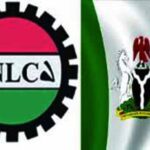






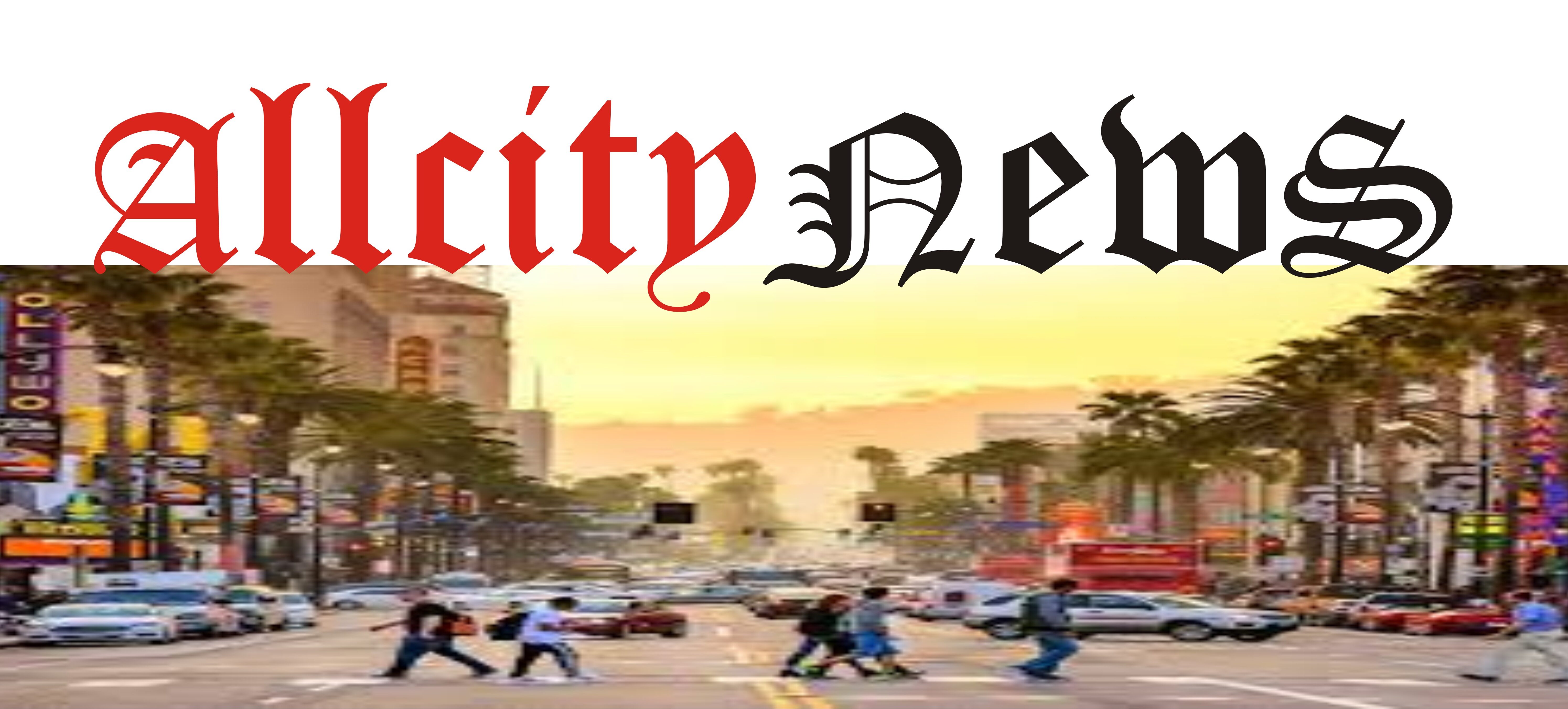
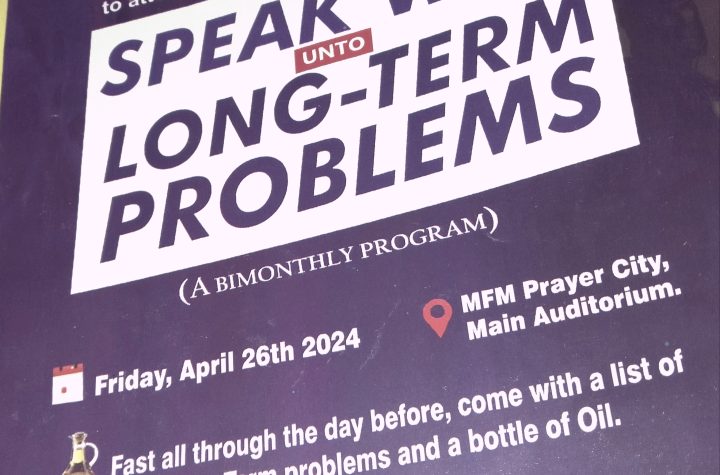
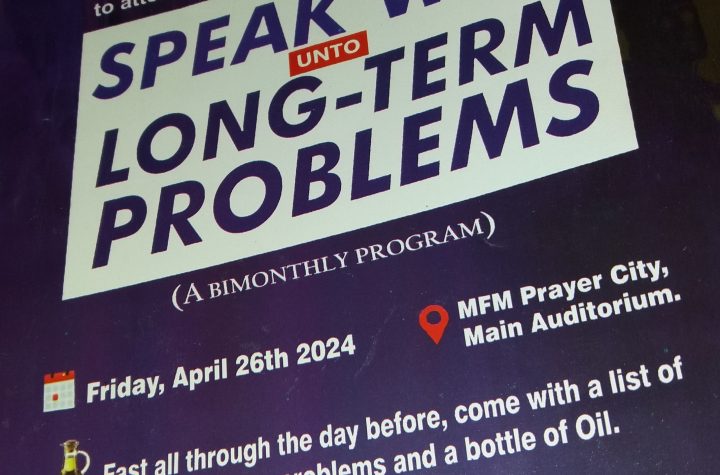


More Stories
Iron Rod & Steel Distributors Employers Union, indicts SON over substandard products
Amidst hardship, unemployment, National Association of Herbal Medicine Employer (NAHME) creates 1500 direct jobs
Nigerian workers have right to report employers over default of CPS payment-PenCom